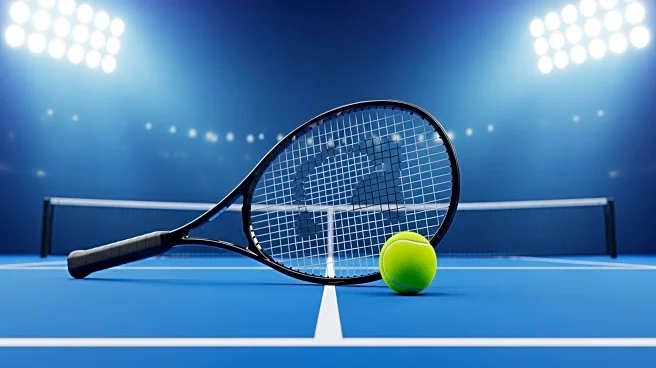What's Happening?
Felix Auger-Aliassime, the Canadian 25th seed, achieved a significant victory at the US Open by defeating world No 3 Alexander Zverev in a four-set match. The victory marks Auger-Aliassime's return to the second week of the tournament for the first time since his semi-final run in 2021. The match, which lasted nearly four hours, showcased Auger-Aliassime's resilience and skill, particularly in the second-set tiebreak where he turned the momentum in his favor. Zverev, who was a runner-up in 2020, struggled with his performance, leading to his earliest exit from the US Open since 2018.
Why It's Important?
This victory is crucial for Auger-Aliassime, who has faced challenges with injuries and inconsistent performances in recent seasons. It reaffirms his potential as a top contender in tennis, providing a morale boost and a reminder of his capabilities on the grand slam stage. For Zverev, the loss is a setback in his pursuit of a first grand slam title, highlighting the competitive nature of the sport and the unpredictability of outcomes. The match also underscores the ongoing debate about late-night finishes at grand slams, as scheduling issues affected subsequent matches.
What's Next?
Auger-Aliassime will face Russia's Andrey Rublev in the fourth round, presenting another opportunity to advance further in the tournament. Rublev, the 15th seed, has consistently reached the second week in New York but has yet to progress beyond the quarter-finals in major tournaments. The outcome of this match could significantly impact Auger-Aliassime's standing and confidence in future competitions. Meanwhile, Zverev will need to reassess his strategy and performance as he prepares for upcoming tournaments.
Beyond the Headlines
The match between Auger-Aliassime and Zverev highlights the intense competition and pressure faced by professional tennis players. It also brings attention to the physical and mental demands of the sport, as players must navigate injuries and maintain peak performance. The scheduling issues at the US Open reflect broader concerns about player welfare and the logistics of organizing major sporting events, prompting discussions about potential changes to improve conditions for athletes.








